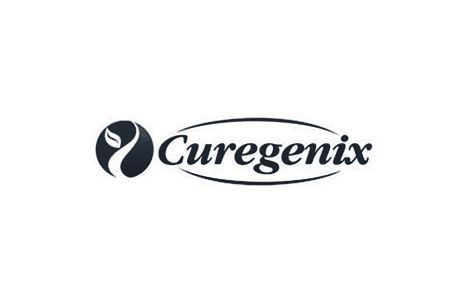预约演示
更新于:2025-05-07

Curegenix, Inc.
更新于:2025-05-07
概览
标签
肿瘤
其他疾病
小分子化药
关联
3
项与 Curegenix, Inc. 相关的药物靶点 |
作用机制 PORCN抑制剂 |
在研机构 |
原研机构 |
最高研发阶段临床1期 |
首次获批国家/地区- |
首次获批日期- |
靶点- |
作用机制- |
在研机构 |
原研机构 |
在研适应症 |
非在研适应症- |
最高研发阶段临床前 |
首次获批国家/地区- |
首次获批日期- |
靶点 |
作用机制 Wnt蛋白抑制剂 |
在研机构 |
原研机构 |
在研适应症 |
非在研适应症- |
最高研发阶段临床前 |
首次获批国家/地区- |
首次获批日期- |
2
项与 Curegenix, Inc. 相关的临床试验NCT03507998
A Phase 1 Open-label Dose Escalation Study of CGX1321 in Subjects With Advanced Gastrointestinal Tumors
This is a multi-center, open label, repeat dose, Phase 1 study consisting of a Dose Escalation Phase and a Dose Expansion Phase to evaluate safety, pharmacokinetics, and clinical activity.
开始日期2017-06-17 |
申办/合作机构  Curegenix, Inc. Curegenix, Inc. [+1] |
NCT02675946
A Phase 1 Open-label Dose Escalation Study of CGX1321 in Subjects With Advanced Solid Tumors With Expansion in Advanced Gastrointestinal Tumors and Phase 1b Study of CGX1321 in Combination With Pembrolizumab in Subjects With Advanced Colorectal Cancer or in Combination With Encorafenib + Cetuximab in Subjects With BRAFV600E Mutated Advanced Colorectal Cancer
This is a multicenter, open-label study conducted in two phases: Phase 1 consisting of a CGX1321 Single Agent Dose Escalation Phase in solid tumors, CGX1321 Single Agent Dose Expansion Phase in GI tumors and Roll-over Cohort of CGX1321 and pembrolizumab in subjects who have progressed on single agent CGX1321 and Phase 1b consisting of CGX1321 in combination with pembrolizumab in colorectal tumors and CGX1321 in combination with encorafenib + cetuximab in BRAFV600E mutated colorectal tumors. Both phases are to evaluate safety, pharmacokinetics, and clinical activity.
开始日期2016-02-01 |
申办/合作机构  Curegenix, Inc. Curegenix, Inc. [+1] |
100 项与 Curegenix, Inc. 相关的临床结果
登录后查看更多信息
0 项与 Curegenix, Inc. 相关的专利(医药)
登录后查看更多信息
1
项与 Curegenix, Inc. 相关的文献(医药)2023-04-14·Cancer Research
Abstract CT117: Synergism between inhibitors of the EGFR-RAS-RAF-MEK pathway and the WNT pathway
作者: Zhou, Yanyuan ; Huang, Xiaoyan ; Zhou, Hang ; Li, Xiaojuan ; He, Wangjun ; Parikh, Aparna R. ; Giannakis, Marios ; Cai, Jinjin ; Labdon, Jim ; Dorr, Andrew ; He, Qiuping ; Rosenstein, Laurie ; An, Michael
1
项与 Curegenix, Inc. 相关的新闻(医药)2021-11-23
Precision-med biotech Allorion Therapeutics is expanding — and now has tens of millions of dollars more to work with.
The Natick, MA-based company announced in a statement this morning that it closed a Series A round, bringing in $40 million. Shanghai VC Qiming Venture Partners led the round, which also includes a number of both new and old investors — Octagon Capital, IDG Capital and TF Capital, to name a few.
According to Allorion, which has operations in both Massachusetts and Guangzhou, China, the $40 million will go toward preclinical projects, IND-enabling studies and IND applications of two drug candidates in China and the US. It also includes investing in its own internal drug discovery platform.
The biotech focuses on discovering small molecules specifically against cancer and autoimmune diseases — but to what extent remains unclear. Allorion has not yet named any targets or programs it is prioritizing.
However, the company says there is an internal focus on “chemical libraries,” emphasizing allosteric and covalent modulators, with a hint of AI through “optimizing the libraries through the aid of AI.”
Allorion started up close to 18 months ago in June 2020, when co-founders Peter Ding and Fang Li got together. Ding, currently Allorion’s CEO, came over from another company where he was a co-founder — Curegenix, where he was also head of R&D. Li joined up as CSO after leaving his position as the head of translational and computational biology at Cambridge precision oncology player Tango Therapeutics.
And last December, Allorion got their internal labs up and running at their sites in Massachusetts and Guangzhou, according to a company statement.
“We have confidence in the team’s strong R&D capabilities. We hope to support Allorion to grow into a globally-recognized company and improve patients’ life quality,” Ding said in a prepared statement.
合作小分子药物
100 项与 Curegenix, Inc. 相关的药物交易
登录后查看更多信息
100 项与 Curegenix, Inc. 相关的转化医学
登录后查看更多信息
组织架构
使用我们的机构树数据加速您的研究。
登录
或

管线布局
2026年02月28日管线快照
管线布局中药物为当前组织机构及其子机构作为药物机构进行统计,早期临床1期并入临床1期,临床1/2期并入临床2期,临床2/3期并入临床3期
临床前
2
1
其他
登录后查看更多信息
药物交易
使用我们的药物交易数据加速您的研究。
登录
或

转化医学
使用我们的转化医学数据加速您的研究。
登录
或

营收
使用 Synapse 探索超过 36 万个组织的财务状况。
登录
或

科研基金(NIH)
访问超过 200 万项资助和基金信息,以提升您的研究之旅。
登录
或

投资
深入了解从初创企业到成熟企业的最新公司投资动态。
登录
或

融资
发掘融资趋势以验证和推进您的投资机会。
登录
或

生物医药百科问答
全新生物医药AI Agent 覆盖科研全链路,让突破性发现快人一步
立即开始免费试用!
智慧芽新药情报库是智慧芽专为生命科学人士构建的基于AI的创新药情报平台,助您全方位提升您的研发与决策效率。
立即开始数据试用!
智慧芽新药库数据也通过智慧芽数据服务平台,以API或者数据包形式对外开放,助您更加充分利用智慧芽新药情报信息。
生物序列数据库
生物药研发创新
免费使用
化学结构数据库
小分子化药研发创新
免费使用
